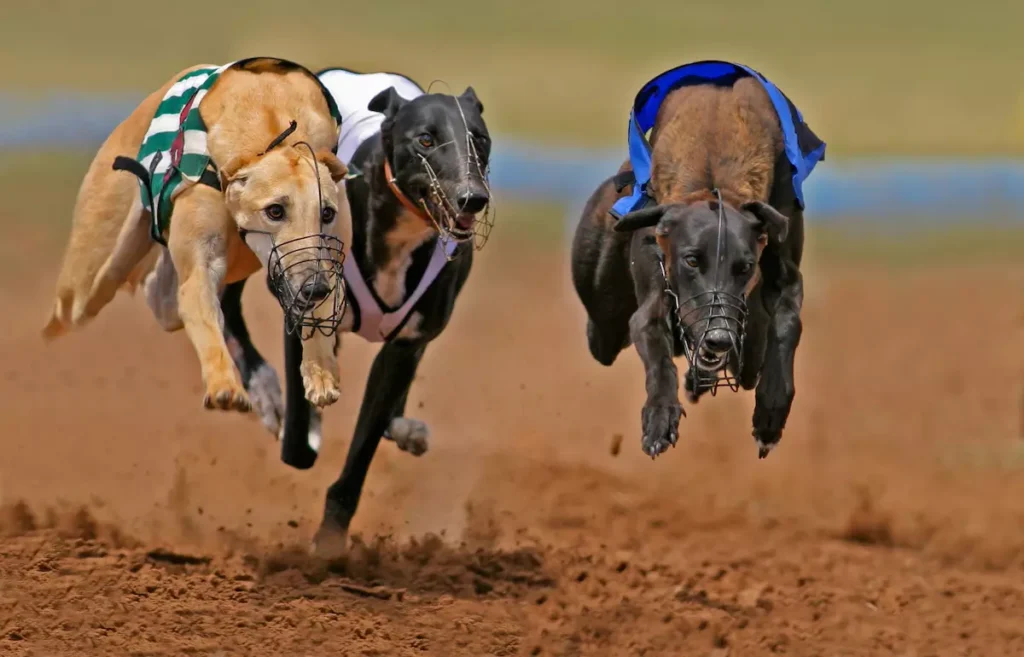The animal protection movement is likely to soon finish off greyhound racing. A decisive step toward that goal occurred last week when Delaware North announced that its Southland Casino Racing facility in Arkansas will cease live dog races by the end of 2022.
It is exceedingly difficult and rare to close out any major animal-use industry. It hasn’t yet been accomplished with horrid and unpopular practices such as canned hunting or live pigeon shoots, or bigger enterprises such as trophy hunting or the extreme confinement of farm animals. To say nothing of puppy mills, animal testing for safety assessment of chemicals or compounds, or even the use of steel-jawed leghold traps. (California has, in a banner year of lawmaking, passed legislation to ban all trapping and any sale of fur, but that’s just one state.)
I do expect we’ll knock off horse soring soon. And also the use of wild animals in traveling circuses and roadside zoos.
In terms of closing out a national industry, it was done a century ago with the plume trade, which involved hunters killing birds for their feathers for hat-making. In the 1970s, the United States stopped commercial whaling, although there is some “subsistence” hunting of the biggest animals in the world. We do have a federal law against killing other marine mammals, but there are holes being poked in that law. In 2015 we put an end to invasive experiments on chimps, but other primates are subjected to painful experiments and ethologically miserable environments. And there’s a federal law against aerial hunting of native wildlife, but the government still conducts some aerial gunning and Alaska allows land-and-shoot hunting of some predators.
Last year, AWA led a successful effort to ban animal fighting in every jurisdiction in the United States. But enforcement of our anti-fighting laws, especially concerning cockfighting, will require determined action and the exercise of authority by law enforcement acting on behalf of government at every level.
Enforcing a ban of greyhound racing won’t be as difficult, since organized racing all but requires a contract with the state, an open-air track with seating and concessions, and a crowd interested in wagering. Once the legal standards are in place, all these elements unravel: the states focus on more profitable forms of gambling, the tracks will get converted to condos or shopping malls, and the fans will effortlessly switch to a dizzying arena of more appealing and more benign forms of entertainment.
And that day is coming. Delaware North also has two tracks in West Virginia, and it’s hard to imagine the company agreeing to phase out racing in Arkansas but continuing to prop it up in West Virginia. The humane issues are identical, and in both states, spectator interest in greyhound racing has cratered. It’s no longer a viable business.
Thirty years ago, there were 60 greyhound tracks, and now just a handful remain. Delaware North operates the last three tracks with any solid footing.
A big blow to greyhound racing occurred in 2008 when the Massachusetts-based GREY2K USA Worldwide led a successful ballot initiative to ban racing there. That revealed that if given the chance, voters would say “enough.”
But the fatal blow to racing came last year when Florida voters approved a constitutional amendment with nearly 70 percent support, phasing out dog racing by the end of 2022. Since the vote, 6 of 12 tracks in Florida have shuttered operations, and the remaining operations will follow suit in the next year.
The vote reverberated, and you can draw a straight line from that result to the agreement by key stakeholders in Arkansas to end racing there.
Animal Wellness Action partnered in the Florida and Arkansas campaigns with GREY2K which has been tenacious, strategic and methodical in working to end greyhound racing. I have been privileged to work for many years with the group’s two leaders, Carey Theil and Christine Dorchak, and we’d not be poised to close out the industry without their vision and execution.
I’ve often said that every kind of animal needs an advocate and every kind of animal exploitation needs a single-minded adversary. GREY2K has been that group for the greyhounds.
To finish off an industry, there must be a moral case, but also a practical one. Innovation or competition might render a long-standing practice obsolete. With greyhound racing, the tracks continued to operate only because of subsidies. In Florida and other states, there were dogs running around an oval surrounded by nearly empty bleachers. That’s the type of business you might see in the old Soviet Union, as a losing enterprise is conducted only to benefit the apparatchiks and other party faithful. It should not exist, however, in a nation practicing a form of regulated capitalism.
There’s more work to be done to finish off racing in just the few states where it holds on. But the trajectory is clear and the trends irreversible. The idea of watching dogs chase a mechanical rabbit and hurtle around a dirt track will be a case example of how the march forward for the humane economy helped give the dogs a break. The greyhounds you’ll encounter in the years ahead will be at dog parks or curled up on couches.
>Wayne Pacelle is the founder of Animal Wellness Action, and author of The Humane Economy
